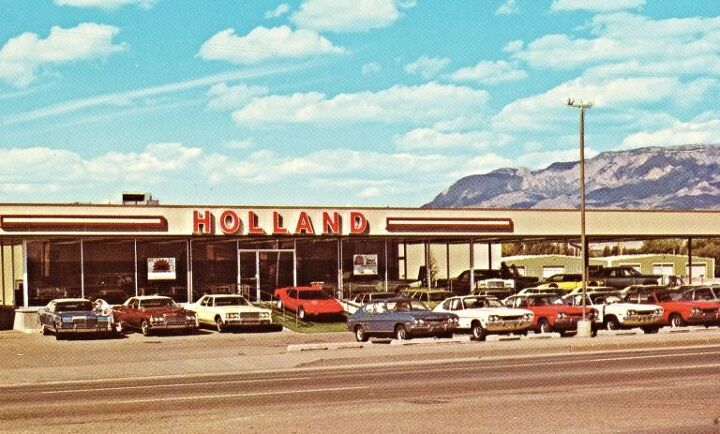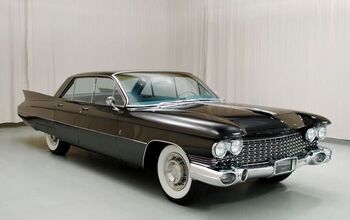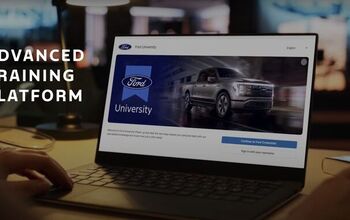Old Man's Game: Car Dealerships Can't Hold Onto Younger Employees

There’s a popular notion that young people are ruining the automotive industry. It probably has something to do with the steady climb of average transaction prices and a median income for millennials that’s comparatively worse than that of their parents at a similar age. Plenty of evidence exists that younger individuals aren’t particularly fond of the car-buying experience.
They don’t seem particularly fond of the car selling experience, either. Millennials account for nearly 60 percent of dealer hires but shops lose over half of them every year, according to a study by the management firm Hireology. That’s an impressively high turnover rate that probably isn’t helping turn around stagnating car sales, as it takes a while to master any profession.
Nissan Motor Co. said it witnessed a 100 percent turnover for its sales staff at its dealerships over the last year, meaning some positions went vacant more than once in a 12-month period. That’s pretty bad, and it puts those shops at a huge disadvantage. New hires need time to acclimate themselves to the job and the vehicles.
Have you ever noticed that a lot of salespeople don’t seem to know anything about the models they’re selling? Turnover is a big part of why that happens. Not everyone who takes the job is an automotive enthusiast and, when that’s the case, they need plenty of time to build their knowledge base. But that’s difficult when cars are only becoming more complex and dealerships can’t hold onto their staff.
Hireology theorized that one of the biggest contributing factors to the employee retention problem is the additional debt younger generations tend to carry. Slapped with sky-high tuition costs, millennials often carry hefty student loans, making a steady income more of a necessity. But dealership pay is frequently commission-based.
There is also a bit of culture shock. Many millennials feel dealers have an outdated approach to selling that doesn’t always fit their values, even if the jobs have the potential to pay well. They are less inclined to be agreeable with the hard sell and haggling — no matter which side of the table they’re on. Earl Stewart, owner of Earl Stewart Toyota in North Palm Beach, Florida, said younger groups despise “bait-and-switch” tactics and the “old boys’ club” mentality that persists at some dealerships.
“Car dealers are selling cars like it is the 1960s,” Stewart told The Wall Street Journal.
However people aren’t buying cars like it’s the ’60s. For some shoppers, disposable income is exceptionally low. More and more customers now walk through the dealer’s doors armed with enough information to keep salespeople from bending them over the hood.
Adam Kraushaar, president of New Jersey’s Lester Glenn Auto Group, said he realized he couldn’t continue to pay salespeople by using a percentage of the gross profit on new-car sales. “They would starve if I kept the old pay plan,” Kraushaar asserted.
Other dealerships have decided to remunerate employees by how many vehicles they sell a month, rather than on a traditional profit-based commission. Online training courses are popping up to help new staff familiarize themselves with the vehicles and the process. Some shops claim these changes make a big difference, but it’s by no means the industry standard. Still, while some dealerships try everything under the sun to incentivize their salespeople to stay, the retention problem remains a serious issue.

A staunch consumer advocate tracking industry trends and regulation. Before joining TTAC, Matt spent a decade working for marketing and research firms based in NYC. Clients included several of the world’s largest automakers, global tire brands, and aftermarket part suppliers. Dissatisfied with the corporate world and resentful of having to wear suits everyday, he pivoted to writing about cars. Since then, that man has become an ardent supporter of the right-to-repair movement, been interviewed on the auto industry by national radio broadcasts, driven more rental cars than anyone ever should, participated in amateur rallying events, and received the requisite minimum training as sanctioned by the SCCA. Handy with a wrench, Matt grew up surrounded by Detroit auto workers and managed to get a pizza delivery job before he was legally eligible. He later found himself driving box trucks through Manhattan, guaranteeing future sympathy for actual truckers. He continues to conduct research pertaining to the automotive sector as an independent contractor and has since moved back to his native Michigan, closer to where the cars are born. A contrarian, Matt claims to prefer understeer — stating that front and all-wheel drive vehicles cater best to his driving style.
More by Matt Posky
Latest Car Reviews
Read moreLatest Product Reviews
Read moreRecent Comments
- Brendan Duddy soon we'll see lawyers advertising big payout$ after getting injured by a 'rogue' vehicle
- Zerofoo @VoGhost - The earth is in a 12,000 year long warming cycle. Before that most of North America was covered by a glacier 2 miles thick in some places. Where did that glacier go? Industrial CO2 emissions didn't cause the melt. Climate change frauds have done a masterful job correlating .04% of our atmosphere with a 12,000 year warming trend and then blaming human industrial activity for something that long predates those human activities. Human caused climate change is a lie.
- Probert They already have hybrids, but these won't ever be them as they are built on the modular E-GMP skateboard.
- Justin You guys still looking for that sportbak? I just saw one on the Facebook marketplace in Arizona
- 28-Cars-Later I cannot remember what happens now, but there are whiteblocks in this period which develop a "tick" like sound which indicates they are toast (maybe head gasket?). Ten or so years ago I looked at an '03 or '04 S60 (I forget why) and I brought my Volvo indy along to tell me if it was worth my time - it ticked and that's when I learned this. This XC90 is probably worth about $300 as it sits, not kidding, and it will cost you conservatively $2500 for an engine swap (all the ones I see on car-part.com have north of 130K miles starting at $1,100 and that's not including freight to a shop, shop labor, other internals to do such as timing belt while engine out etc).


































Comments
Join the conversation
I thought it was a requirement, chiseled in stone somewhere, that any salesperson know absolutely nothing about what they are selling. On another note concerning things Arthur Dailey and others mentioned, I know of quite a number of people that work a full time day job and then do something like uber or park cars, at night. All that to get the purchasing power one would have from a part time job 40 years ago. So there's lots of great jobs out there, so great that many people have 2 or 3.
"I’m not looking to hire perfect people. I only want three things. 1. You need to have a clue 2. You need to give a rats butt about the work 3. You need to show up It’s amazing how hard it is to get all three, especially the last one. Attendance is the number one reason I fail people on probation." @ BRN The real question is what are you offering? In my experience when I come across employers screaming "employee shortage" I usually find: Low compensation (low pay, no benefits, etc) Poor advertising Overly stringent qualifications No on the job training, must hit the ground running. Bad management. How much are you offering vs the cost of living for your area? Do you offer benefits or do you expect your employees to depend on social services for those? Are you targeting your "help wanted" ads where you target employees will see it? Do you treat your employees like cheap rented mules?